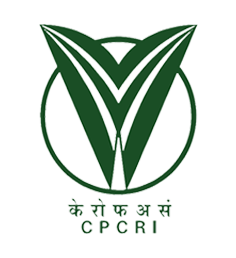

Bio-management of coconut black headed caterpillar in Arsikere, Karnataka
The black headed caterpillar, Opisina arenosella, is a major pest of coconut distributed in all coconut growing tracts of the country. The caterpillars live in galleries on the abaxial surface of fronds and feed on the chlorophyll containing leaf tissues. Extensive feeding of caterpillars causes a crop loss of 45.4% in terms of nut yield in the succeeding years. Integrated Pest Management (IPM) has been recommended as the ideal, long-term and sustainable strategy for the bio-management of the pest.
A demonstration-cum-technology delivery on IPM of coconut black headed caterpillar with emphasis on biological control was conducted at Arsikere region, Hassan District, Karnataka by ICAR-CPCRI where an outbreak of O. arenosella was observed in during October 2013 with leaf damage to the extent of 80-95% infesting in about six ha of coconut garden. The technology options successfully showcased in the affected garden through farmerparticipatory approaches were removal and burning of heavily infested 2-3 outer fronds, one time spraying of chlorantriniliprole (green labeled) @ 0.1ml-1 of water, release of stage specific parasitoids (Goniozus nephantidis and Bracon brevicornis) after three weeks of pesticide application and adoption of soil and palm health management strategies.
Emergence of healthy new leaves in the pest-infested plantation after intervention is so convincing that most of the nearby farmers emulated the technology at the shortest period. Sustainability of the technology was visible by recovery of palms in the adjacent coconut plantations also. Pest infestation showed visible decline in a period of four months from an initial leaf damage of 76% during October 2013 to 43% during February 2014. Subsequently complete recovery of palms was achieved in a period of 15 months by January 2015 and no further pest incidence was noticed in subsequent monitoring done during April 2016 indicating sustainability of the eco-friendly technology. The participating farmers took forward the technology as positive spokesperson to nearby locations making the entire zone pest free with successful establishment of parasitoids.